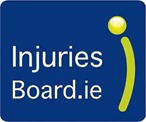A decade of personal injury reform
 Recently marking the tenth anniversary of its establishment, Injuries Board Chief Executive Patricia Byron discusses the Board’s non-adversarial model and the benefits it has delivered.
Recently marking the tenth anniversary of its establishment, Injuries Board Chief Executive Patricia Byron discusses the Board’s non-adversarial model and the benefits it has delivered.
The Injuries Board is the Government body which assesses personal injury claims arising from accidents on the road, in the workplace and in public places, without the need for costly litigation. Since its establishment a decade ago, as a key element of the Government’s Insurance Reform Programme to tackle the spiralling cost of insurance, there has been a seismic shift in the personal injury landscape in Ireland.
By removing personal injury cases from unnecessary litigation, the Board’s non-adversarial model has yielded savings of over €1 billion, reduced the timeline for claims from three years to seven months and delivered a 40 per cent reduction in motor insurance premiums. The key principle underpinning the Board’s model is that early investigation and engagement prevents needless delays, cost, trauma and acrimony. These outcomes are enormously beneficial to businesses, the tax-payer, the Exchequer and society as a whole.
Lower insurance costs improve competiveness, as historically, the high cost of handling personal injury claims was a key driver in the overall cost of insurance. Quick resolution of claims minimises business disruption and avoids the time and financial costs associated with litigation.
Personal injury claims by staff or customers can be a source of friction for a business and result in prolonged absenteeism by staff or strained relations with a valued customer. Early resolution can facilitate earlier rehabilitation and return to work.
Non-adversarial resolution negates the requirement for a potentially stressful court case. The system diverts nearly 20,000 personal injury cases from the courts each year.
As a matter of course on its tenth year in operation, the founding legislation underpinning the Injuries Board is being reviewed. A public consultation forms part of this process.
In line with the Board’s ongoing commitment to excellence in the delivery of personal injury compensation for all stakeholders, the Book of Quantum – a guide to compensation amounts for personal injuries – will also be updated to maintain confidence in the system.
Now, more than ever, it is important to protect the hard fought gains delivered by the Board’s non-adversarial model and to ensure that unnecessary costs do not creep back into the claims landscape. We are satisfied that the Injuries Board model has been of immense benefit to businesses and consumers, most notably the 40 per cent reduction in motor premiums. The reality is that by eliminating an unnecessary layer of cost from processing claims, we have contributed to a more competitive environment in terms of the costs of goods and services to consumers and business alike. At this milestone in our development, any amendments that protect or strengthen the legislative position of the Board’s model are to be welcomed.
Given the strong opposition to the establishment of the Board ten years ago from vested interests, it is likely that the current review of the Personal Injuries Assessment Board Acts may see vested interests and detractors re-emerge. At a time of reflecting upon the premise of the Injuries Board – and what has been delivered by this game-changing system – what is key now is to ensure the hard fought gains achieved over the past ten years are not eroded or diluted in any way.






